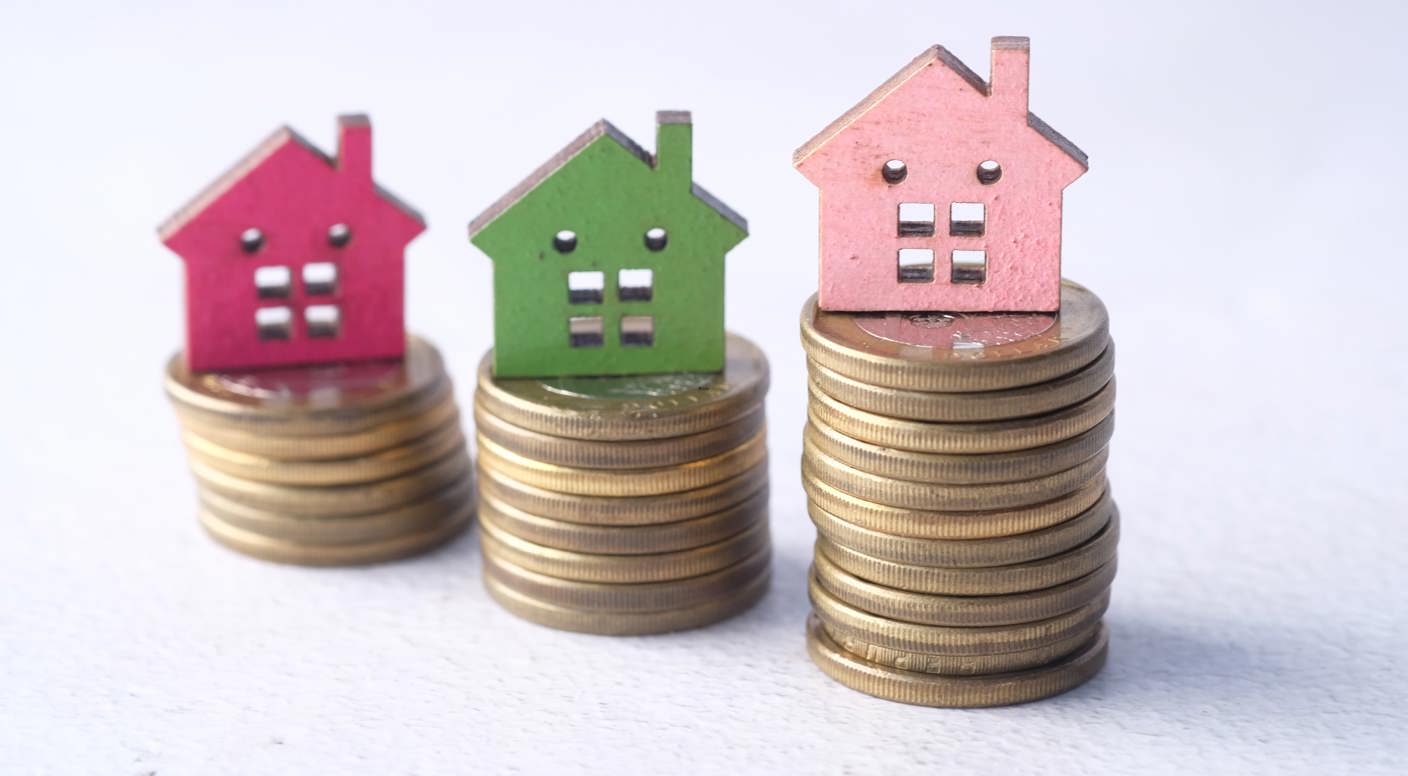An accurate property valuation you can trust
We'll help you to find the value of your property, so you can find a buyer or tenant as soon as possible.
Enter your details below to book a professional appraisal.
When you're looking to buy a property - whether it's your first home, a move up the ladder or an investment - one of the biggest challenges is knowing whether the asking price is fair. It's easy to get emotionally invested in a house that looks perfect, but price is everything. Overpaying can put your finances under strain, affect your mortgage options, and reduce your return on investment. On the other hand, recognising when a property is overpriced puts you in a stronger negotiating position. But how exactly can you tell?

Understanding What Drives Property Value
To determine whether a property is overpriced, you must first understand what influences its market value. Location is always the most significant factor - proximity to good schools, transport links, green space, and local amenities can all drive demand. The property's condition also matters, especially if expensive work is required that doesn't match the price tag. Floorplan layout, energy efficiency, kerb appeal and parking availability can affect buyers' willingness to pay. Crucially, though, value is also influenced by how the home compares with similar properties in the area, and this is where pricing starts to get more measurable.
Look Closely at Recent Sale Prices in the Area
One of the clearest signs that a property is overpriced is if it's significantly higher than comparable homes sold nearby. These comparables - often called "comps" - reflect what buyers have recently paid for similar properties under similar conditions. Look at sales completed in the past 3–6 months, not just asking prices currently listed online. If the property you're considering is priced well above similar homes, even with similar square footage or features, it could be overvalued. This is particularly true in a slow or cooling market where sellers cling to peak valuations from months earlier.
Pay Attention to Price Reductions and Time on the Market
Another strong indicator that a property is overpriced is how long it has been on the market. If a house has been listed for several months with no accepted offer or has had multiple price reductions, there may be a mismatch between what the seller wants and what the market is willing to pay. Sometimes, this might not be because the home lacks quality - it could be due to unrealistic pricing or poor timing. Always ask the estate agent how long the property has been listed and whether there's been much interest or previous offers declined.
Emotions vs Evidence: The Danger of Wishful Thinking
Overpricing is not always a result of a dishonest seller. Often, it stems from emotion. Sellers become attached to the value they believe their home deserves, especially if they invest heavily in renovations or have personal memories tied to the space. Unfortunately, buyers often make similar emotional decisions - seeing a home they love and stretching their budget, even when the numbers don't add up. To avoid this, focus on the evidence. Look at the property's square footage, EPC rating, comparable properties, and the wider market trends in the area. Remember, no matter how perfect a home feels, the valuation must still make sense, especially if you rely on a mortgage lender to agree.
What Your Mortgage Lender Will Say
If you're buying with a mortgage, the lender will conduct a valuation. If their surveyor determines the property is worth less than the agreed price, this can cause problems with your loan and sometimes lead to a down valuation. That means you'll have to renegotiate the purchase price or cover the difference - a common sign that the original valuation was unrealistic. Relying on a lender's assessment is a valuable backup, but it's better to have clarity yourself before making an offer, especially if you're in a competitive bidding situation.
Work With a Local Expert Who Knows the Market
If you're unsure whether a property is overpriced, your best move is to speak to a local expert with up-to-date area knowledge. At Farrell Heyworth, we help buyers across the North West make confident, informed decisions when it comes to property pricing. Our team understands the subtle pricing shifts that can happen from street to street, and we provide insight into which homes are likely to hold value, and which may be overpriced based on recent trends. Whether you're viewing a home in Preston, Southport, Lancaster or beyond, we're here to support you with clear, evidence-based advice.
Ask Questions, Don't Settle
When in doubt, always ask the estate agent questions about how the property was valued. What comparable sales did they look at? Was there a recent survey? Have any offers been made or rejected? If the price doesn't match the property's size, location or condition, it's okay to walk away or make a lower offer. Overpaying can lead to future regret, especially if you need to sell in a softer market later on. A fair price reflects the market and your circumstances, not just what the seller hopes to achieve.
Price Awareness Is Buyer Power
Knowing whether a property is overpriced requires more than guesswork - comparing data, reading the market, and trusting your instincts alongside professional guidance. Don't let excitement blind you to red flags, and always be ready to question the numbers if something feels off. With the right advice, a sharp eye, and access to local insight, you can make an offer that reflects real value, not just hopeful pricing. And remember, Farrell Heyworth is always here to help guide you through the process with honesty and expertise.
Related Posts
UK Rental Market Outlook 2026: National Trends & North West Growth Analysis
Our latest blog post combines the latest data from the Rightmove Rental Trends Tracker, the ONS Private Rental Price Index,…
Most In-Demand Property Features for 2026 Buyers: UK Trends and North West Insights
National data from the Office for National Statistics, the Bank of England and leading property portals such as Rightmove consistently…
Why Coastal Relocations Will Surge Again in 2026: Complete Guide for UK Home Buyers
Across the UK, search volumes for phrases such as "move to the coast", "best coastal towns to live", and "coastal…



